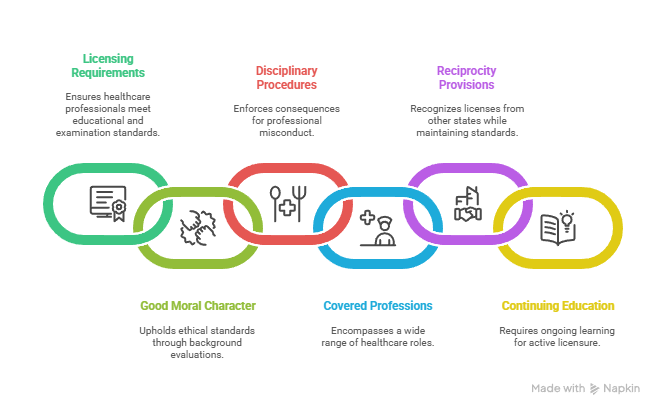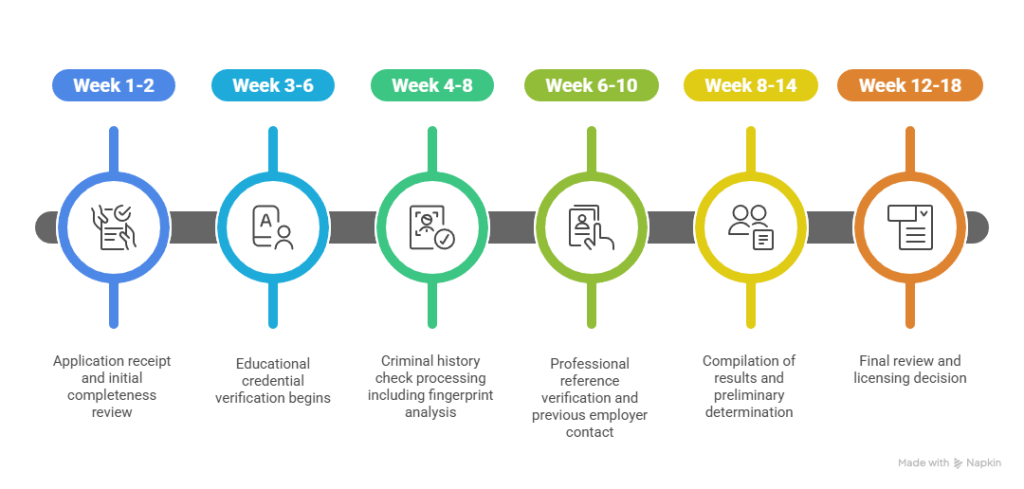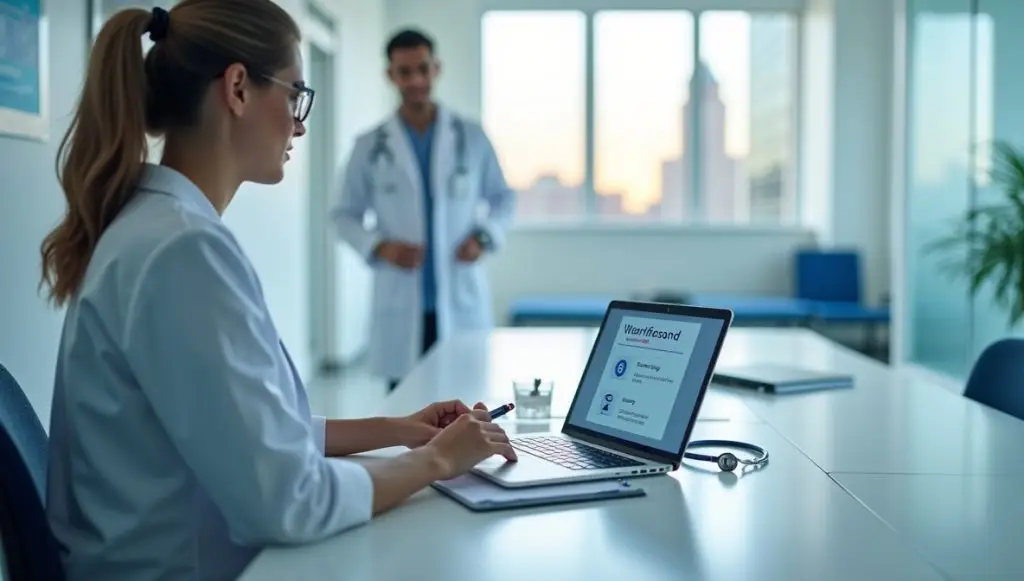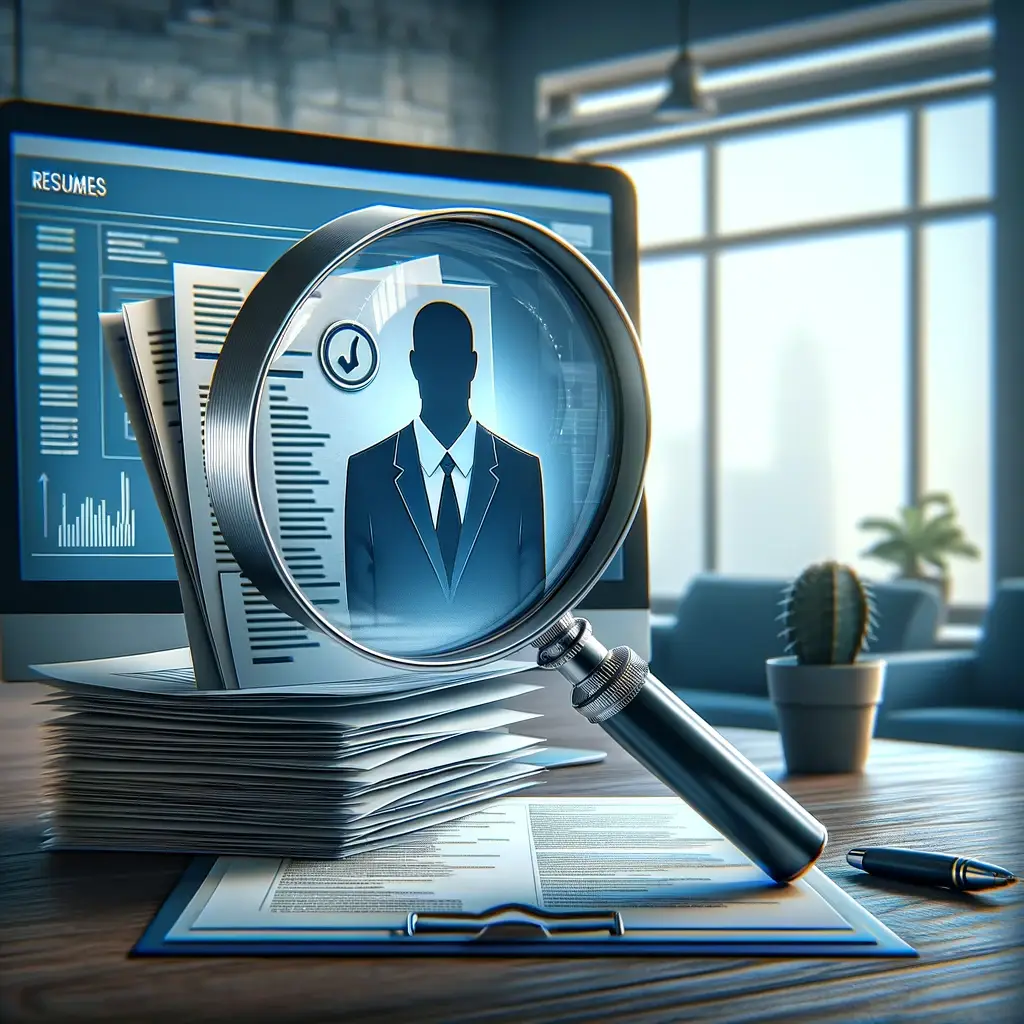Healthcare background checks in New York are governed by the New York State Education Department (NYSED) under Article 131, establishing rigorous standards for criminal history, licensing verification, and professional conduct evaluation. These comprehensive screenings typically take 8-18 weeks and include federal, state, and local criminal records review, educational credential verification, and professional reference checks to ensure only qualified individuals provide healthcare services.
Key Takeaways
- New York healthcare background checks encompass criminal history at federal, state, and local levels, professional licensing verification, educational credentials, and disciplinary action reviews.
- Article 131 of New York Education Law mandates specific requirements for healthcare professionals including physicians, nurses, pharmacists, and other allied health workers.
- The NYSED background check process typically takes 8-18 weeks depending on application completeness and complexity of the individual's history.
- Criminal convictions don't automatically disqualify candidates; rehabilitation efforts, time elapsed, and the nature of the offense are carefully considered.
- Employers must conduct pre-employment screenings and maintain ongoing compliance monitoring to ensure workplace safety and regulatory adherence.
- Healthcare workers in specialized fields or working with vulnerable populations face additional scrutiny and may require supplementary certifications.
Introduction
Navigating the healthcare employment landscape in New York requires understanding the comprehensive background check requirements that protect both patients and healthcare institutions. The New York State Education Department (NYSED) oversees these critical evaluations through Article 131 of the Education Law, creating a standardized framework that ensures only qualified, ethical professionals enter the healthcare workforce. These background checks go far beyond simple criminal history reviews, encompassing educational verification, professional licensing history, and character assessments that collectively determine a candidate's suitability for healthcare practice. Whether you're a healthcare professional seeking licensure or an employer ensuring compliance, understanding these requirements is essential for successfully navigating New York's healthcare regulatory environment.
Understanding New York Healthcare Background Checks
Healthcare background checks in New York serve as the cornerstone of patient safety and professional integrity. The New York State Education Department oversees this critical process, ensuring healthcare facilities maintain the highest standards of care through comprehensive vetting procedures.
The screening process examines multiple aspects of a candidate's background to create a complete professional profile. Criminal history investigations delve into federal databases, state repositories, and local court records to identify any past legal issues that might compromise patient care. Educational institutions are contacted directly to verify degrees, certifications, and transcripts, preventing fraudulent credentials from entering the healthcare system.
| Background Check Component | What's Reviewed | Timeline |
| Criminal History | Federal, state, and local records; convictions and pending charges | 2-4 weeks |
| License Verification | Current and past licenses from all states; disciplinary actions | 4-6 weeks |
| Education Confirmation | Degrees, certifications, transcripts from accredited institutions | 2-3 weeks |
| Reference Checks | Professional references from supervisors and colleagues | 1-2 weeks |
| Disciplinary Review | Board actions, sanctions, malpractice history | 3-4 weeks |
These comprehensive checks protect vulnerable patients while maintaining fair evaluation standards for healthcare professionals seeking employment in New York's medical facilities.
Article 131: Legal Framework for Healthcare Licensing
Article 131 of New York Education Law establishes the foundational requirements for healthcare professional licensing across the state. This legislation creates standardized criteria ensuring all healthcare workers meet rigorous educational, ethical, and professional standards before treating patients.

- Licensing Requirements: Healthcare professionals must complete degree programs from accredited institutions and pass comprehensive state examinations specific to their discipline. These requirements ensure practitioners possess both theoretical knowledge and practical competencies necessary for safe patient care.
- Good Moral Character Standards: Applicants must demonstrate honesty, integrity, and ethical behavior through extensive background investigations and character references. This evaluation includes reviewing criminal history, professional conduct records, and personal references to ensure candidates uphold the trust inherent in healthcare relationships.
- Disciplinary Procedures: The law establishes clear consequences for professional misconduct, ranging from written warnings to license revocation depending on severity. These procedures protect public safety while providing due process for healthcare professionals facing allegations of improper conduct.
- Covered Professions: Article 131 governs over 50 healthcare professions including physicians, registered nurses, pharmacists, dentists, and physical therapists. Each profession has tailored requirements while maintaining consistent standards for education, examination, and character evaluation.
- Reciprocity Provisions: The legislation addresses how New York recognizes licenses from other states while maintaining its rigorous standards. Healthcare professionals licensed elsewhere must still meet New York's specific requirements, though certain accommodations exist for those with established practice histories.
- Continuing Education: Licensed professionals must complete ongoing education to maintain their credentials and stay current with evolving medical practices. Requirements vary by profession but typically mandate 20-40 hours of approved coursework per renewal cycle.
The framework ensures consistent application of standards across all healthcare disciplines while protecting public welfare through stringent vetting processes.
The NYSED Background Check Process
The New York State Education Department follows a structured approach to background verification that begins with application submission. Candidates must provide complete documentation including fingerprint cards, educational transcripts, and professional references along with applicable fees.
The verification process involves multiple state and federal agencies working in coordination to ensure comprehensive screening. NYSED communicates directly with educational institutions to verify degrees and certifications, while simultaneously conducting criminal background checks through the Division of Criminal Justice Services (DCJS) and FBI databases. Professional licensing boards from every state where the applicant has practiced are contacted to confirm license status and identify any disciplinary actions. This multi-layered approach prevents individuals with problematic histories from simply moving between states to avoid detection.
Throughout the process, applicants can track their status through the NYSED online portal, though specific details about ongoing investigations remain confidential until determinations are made. Common reasons for delays include incomplete fingerprint cards requiring resubmission, difficulty verifying international educational credentials, or extended review periods for applicants with complex criminal histories. Maintaining open communication with NYSED and promptly responding to any requests for additional information can significantly reduce processing time and prevent unnecessary complications in the licensing journey.
Timeline and Processing Phases
Initial application review typically occurs within 2-4 weeks, focusing on document completeness and fee verification. The verification phase spans 4-6 weeks as NYSED contacts educational institutions, previous employers, and licensing boards in other states. Criminal background investigations run concurrently, adding 2-4 weeks to the process.

- Week 1-2: Application receipt and initial completeness review
- Week 3-6: Educational credential verification begins
- Week 4-8: Criminal history check processing including fingerprint analysis
- Week 6-10: Professional reference verification and previous employer contact
- Week 8-14: Compilation of results and preliminary determination
- Week 12-18: Final review and licensing decision
Delays commonly result from incomplete applications, difficulty contacting references, or complex criminal history requiring additional review.
Criminal History Evaluation Standards
NYSED evaluates criminal records using a nuanced approach that considers offense severity, time elapsed, and rehabilitation efforts. Automatic disqualifications typically involve serious violent crimes or healthcare-related fraud, while conditional disqualifications depend on multiple factors including the candidate's subsequent behavior and professional development.
| Disqualification Type | Examples | Rehabilitation Consideration |
| Automatic | Murder, sexual assault, healthcare fraud | Rarely considered |
| Conditional | Minor drug offenses, DUI, property crimes | Time elapsed, evidence of rehabilitation |
| Case-by-case | Financial crimes, assault, repeated offenses | Comprehensive review required |
Candidates with criminal histories should provide detailed documentation of rehabilitation efforts, character references, and evidence of positive community contributions since the offense occurred.
Professional Conduct and Ongoing Compliance
Healthcare professionals in New York must maintain exemplary conduct standards throughout their careers. Ethical obligations extend beyond initial licensing to encompass daily practice, requiring strict adherence to patient confidentiality, professional boundaries, and transparent communication.
Continuing education requirements ensure practitioners stay current with medical advances and evolving care standards. Most healthcare professions mandate specific credit hours per renewal cycle, with requirements varying by specialty and practice setting. License renewal typically occurs every 2-4 years depending on the profession.
- Patient Privacy: Maintain HIPAA compliance and protect sensitive health information
- Professional Boundaries: Avoid dual relationships and maintain appropriate provider-patient dynamics
- Transparent Communication: Provide honest, clear information about treatments and outcomes
- Mandatory Reporting: Report suspected abuse, professional misconduct, or public health threats
- Substance Abuse Monitoring: Participate in professional assistance programs if required
- Documentation Standards: Maintain accurate, timely, and comprehensive patient records
Regular monitoring of these standards helps identify potential issues before they escalate into serious violations affecting licensure status.
Special Considerations and Employer Responsibilities

Healthcare employers bear significant responsibility for maintaining compliant workforces through comprehensive screening and ongoing monitoring. Pre-employment verification must include all elements required by Article 131, with particular attention to candidates working with vulnerable populations such as children, elderly patients, or individuals with disabilities.
Beyond initial hiring decisions, employers must establish systematic approaches to credential monitoring that protect both their organizations and the patients they serve. This includes implementing automated systems to track license expiration dates, setting up alerts for disciplinary actions reported to state boards, and conducting periodic audits of employee files to ensure all documentation remains current. Healthcare facilities that fail to maintain rigorous oversight may face significant penalties including fines, loss of accreditation, or exclusion from government healthcare programs such as Medicare and Medicaid.
The complexity of healthcare background checks in New York demands that employers partner with experienced screening providers who understand the nuances of Article 131 compliance. These partnerships should include clear service level agreements, comprehensive reporting capabilities, and expertise in navigating multi-state licensing verification for healthcare professionals who have practiced across state lines. Employers must also ensure their screening processes comply with Fair Credit Reporting Act (FCRA) requirements, providing proper disclosures and obtaining appropriate authorizations before conducting background investigations.
Employer Compliance Requirements
Organizations must establish robust systems for initial screening and continuous monitoring of healthcare staff. This includes regular license status checks, tracking continuing education compliance, and monitoring for new disciplinary actions or criminal charges that might affect employment eligibility.
- Pre-Employment Screening: Verify all credentials before extending job offers
- Ongoing Monitoring: Check license status quarterly and track renewal dates
- Documentation: Maintain comprehensive records of all verification activities
- Policy Development: Create clear procedures for background check processes
- Vendor Management: Select reputable background check providers familiar with healthcare requirements
- Compliance Training: Educate HR staff on Article 131 requirements and updates
Failure to maintain proper screening protocols can result in regulatory penalties, compromised patient safety, and potential liability for negligent hiring practices.
Interstate Practice Considerations
Healthcare professionals licensed in multiple states face additional complexity in meeting varied regulatory requirements. While some states participate in interstate compacts facilitating license recognition, New York maintains independent standards that must be met regardless of other state licensures.
| Consideration | New York Requirement | Impact on Practitioners |
| License Verification | All states where licensed | Extended processing time |
| Disciplinary History | Complete disclosure required | Potential delays or denials |
| Compact Participation | Limited recognition | Separate application needed |
| Continuing Education | NY-specific requirements | Additional credits may be needed |
Practitioners should maintain organized records of all state licenses, disciplinary actions, and continuing education to streamline the application process.
Conclusion
New York's healthcare background check system under NYSED and Article 131 creates a comprehensive framework protecting patient safety while ensuring fair evaluation of healthcare professionals. The process requires patience and thoroughness, typically spanning 8-18 weeks from application to approval. Success depends on complete documentation, transparency about past issues, and understanding of specific professional requirements. Healthcare employers and practitioners alike must remain vigilant about compliance, recognizing that these standards ultimately serve to maintain the integrity and trustworthiness of New York's healthcare system.
Frequently Asked Questions
What specific documents are required for a New York healthcare background check?
Required documents include completed application forms, official transcripts from all educational institutions, fingerprint cards for criminal background checks, professional license verification from all states where you've practiced, three professional references, and any court documents related to criminal history or professional disciplinary actions.
How does NYSED evaluate criminal convictions for healthcare licensing?
NYSED considers the nature and severity of the offense, time elapsed since conviction, evidence of rehabilitation, relationship to healthcare practice, pattern of criminal behavior, and the candidate's honesty in disclosing the information when evaluating criminal history for licensing decisions.
Which healthcare professions fall under Article 131 requirements?
Article 131 covers physicians, registered nurses, nurse practitioners, physician assistants, pharmacists, dentists, dental hygienists, physical therapists, occupational therapists, clinical laboratory technologists, radiologic technologists, respiratory therapists, and most other licensed healthcare professions in New York State.
Can I work in healthcare while my background check is processing?
Generally, no. Most healthcare positions require completed background checks and active licensure before beginning work, though some facilities may allow limited, supervised duties for certain positions while clearance is pending, subject to facility policies and state regulations.
What happens if discrepancies are found in my background check?
If discrepancies are discovered, NYSED will typically request additional documentation or clarification. You'll have an opportunity to provide explanations, correct errors, or submit supporting evidence before any adverse decisions are made regarding your licensure application.
How often must healthcare employers re-verify employee credentials?
New York healthcare employers should verify license status at least quarterly and before each renewal period. Additionally, they must monitor for any disciplinary actions, criminal charges, or changes in licensure status that could affect an employee's eligibility to practice.
Additional Resources
- NYSED Office of the Professions - Healthcare Licensing Information
https://www.op.nysed.gov/professions - New York State Department of Health - Professional Misconduct Enforcement
https://www.health.ny.gov/professionals/doctors/conduct/ - Article 131 of New York Education Law - Full Text
https://www.op.nysed.gov/title8/article131 - Criminal History Review Process - NYSED Guidelines
https://www.op.nysed.gov/criminal-history-review - Healthcare Professional Discipline Search Tool
https://www.nydoctorprofile.com/
Still have questions?
Get in touch with our team today for a personalized demo and discover how our tailored volume pricing and packages can drive results for your business!
How useful was this page?*
Note: your comments are anonymous. We use them to improve the website. Do not include any personal details.
Visit our FCRA Compliance Tool or leave a message here if you need a response.
From the blog Explore the GCheck Content Hub

How Long Does a Background Check Take? A Complete 2025 Guide
13 Dec, 2023 • 14 min read
The Ultimate Background Check Guide
13 Dec, 2023 • 4 min read
The Ultimate Guide to Employment Background Checks
13 Dec, 2023 • 10 min readThe information provided in this article is for general informational and educational purposes only and should not be construed as legal advice or a substitute for consultation with qualified legal counsel. While we strive to ensure accuracy, employment screening laws and regulations—including but not limited to the Fair Credit Reporting Act (FCRA), Equal Employment Opportunity Commission (EEOC) guidelines, state and local ban-the-box laws, industry-specific requirements, and other applicable federal, state, and local statutes—are subject to frequent changes, varying interpretations, and jurisdiction-specific applications that may affect their implementation in your organization. Employers and screening decision-makers are solely responsible for ensuring their background check policies, procedures, and practices comply with all applicable laws and regulations relevant to their specific industry, location, and circumstances. We strongly recommend consulting with qualified employment law attorneys and compliance professionals before making hiring, tenant screening, or other decisions based on background check information.

